第47章
"They were of no agreeable nature," said Glyndon; "and never was intrusion more welcome.""You will be charmed to hear," said Nicot, drawing several letters from his bosom, "that the good work proceeds with marvellous rapidity.Mirabeau, indeed, is no more; but, mort Diable! the French people are now a Mirabeau themselves." With this remark, Monsieur Nicot proceeded to read and to comment upon several animated and interesting passages in his correspondence, in which the word virtue was introduced twenty-seven times, and God not once.And then, warmed by the cheering prospects thus opened to him, he began to indulge in those anticipations of the future, the outline of which we have already seen in the eloquent extravagance of Condorcet.All the old virtues were dethroned for a new Pantheon: patriotism was a narrow sentiment;philanthropy was to be its successor.No love that did not embrace all mankind, as warm for Indus and the Pole as for the hearth of home, was worthy the breast of a generous man.Opinion was to be free as air; and in order to make it so, it was necessary to exterminate all those whose opinions were not the same as Mons.Jean Nicot's.Much of this amused, much revolted Glyndon; but when the painter turned to dwell upon a science that all should comprehend, and the results of which all should enjoy,--a science that, springing from the soil of equal institutions and equal mental cultivation, should give to all the races of men wealth without labour, and a life longer than the Patriarchs', without care,--then Glyndon listened with interest and admiration, not unmixed with awe."Observe," said Nicot, "how much that we now cherish as a virtue will then be rejected as meanness.Our oppressors, for instance, preach to us of the excellence of gratitude.Gratitude, the confession of inferiority! What so hateful to a noble spirit as the humiliating sense of obligation? But where there is equality there can be no means for power thus to enslave merit.The benefactor and the client will alike cease, and--""And in the mean time," said a low voice, at hand,--"in the mean time, Jean Nicot?"The two artists started, and Glyndon recognised Zanoni.
He gazed with a brow of unusual sternness on Nicot, who, lumped together as he sat, looked up at him askew, and with an expression of fear and dismay upon his distorted countenance.
Ho, ho! Messire Jean Nicot, thou who fearest neither God nor Devil, why fearest thou the eye of a man?
"It is not the first time I have been a witness to your opinions on the infirmity of gratitude," said Zanoni.
Nicot suppressed an exclamation, and, after gloomily surveying Zanoni with an eye villanous and sinister, but full of hate impotent and unutterable, said, "I know you not,--what would you of me?""Your absence.Leave us!"
Nicot sprang forward a step, with hands clenched, and showing his teeth from ear to ear, like a wild beast incensed.Zanoni stood motionless, and smiled at him in scorn.Nicot halted abruptly, as if fixed and fascinated by the look, shivered from head to foot, and sullenly, and with a visible effort, as if impelled by a power not his own, turned away.
Glyndon's eyes followed him in surprise.
"And what know you of this man?" said Zanoni.
"I know him as one like myself,--a follower of art.""Of ART! Do not so profane that glorious word.What Nature is to God, art should be to man,--a sublime, beneficent, genial, and warm creation.That wretch may be a PAINTER, not an ARTIST.""And pardon me if I ask what YOU know of one you thus disparage?""I know thus much, that you are beneath my care if it be necessary to warn you against him; his own lips show the hideousness of his heart.Why should I tell you of the crimes he has committed? He SPEAKS crime!""You do not seem, Signor Zanoni, to be one of the admirers of the dawning Revolution.Perhaps you are prejudiced against the man because you dislike the opinions?""What opinions?"